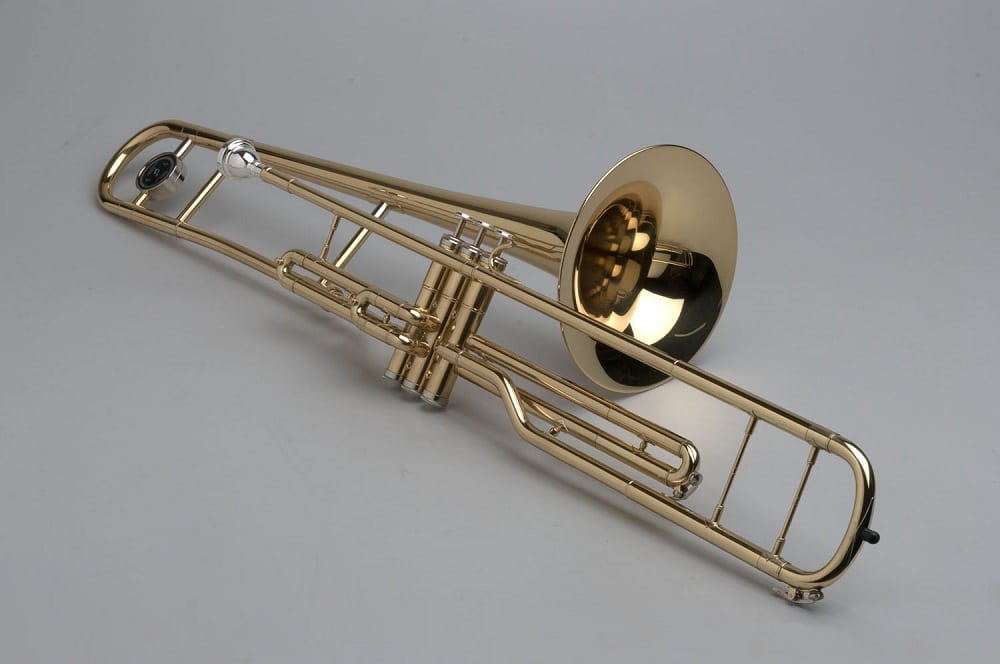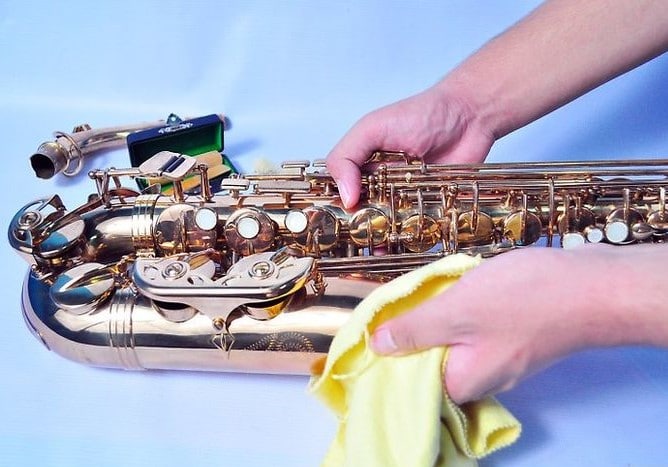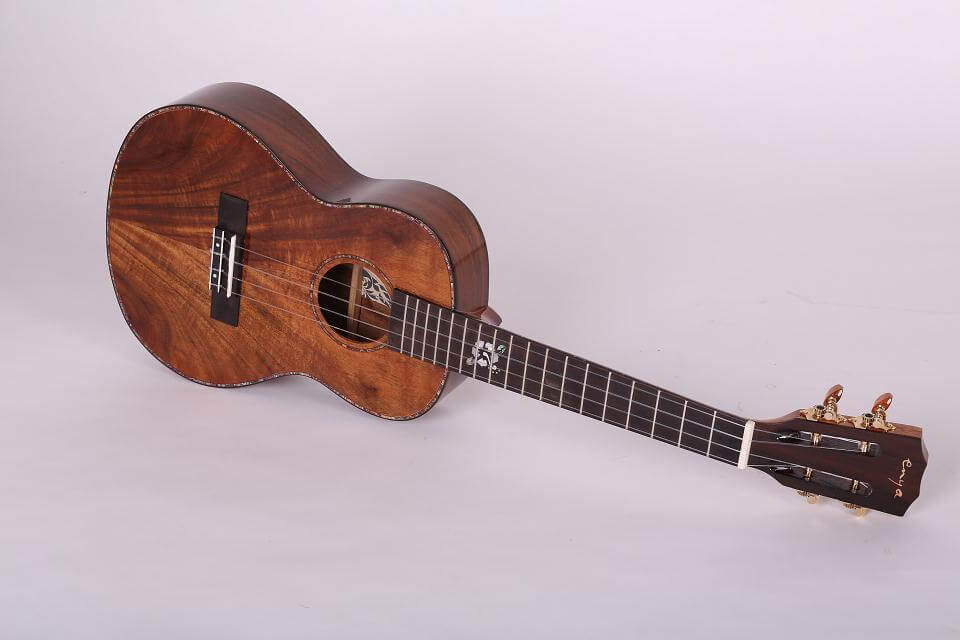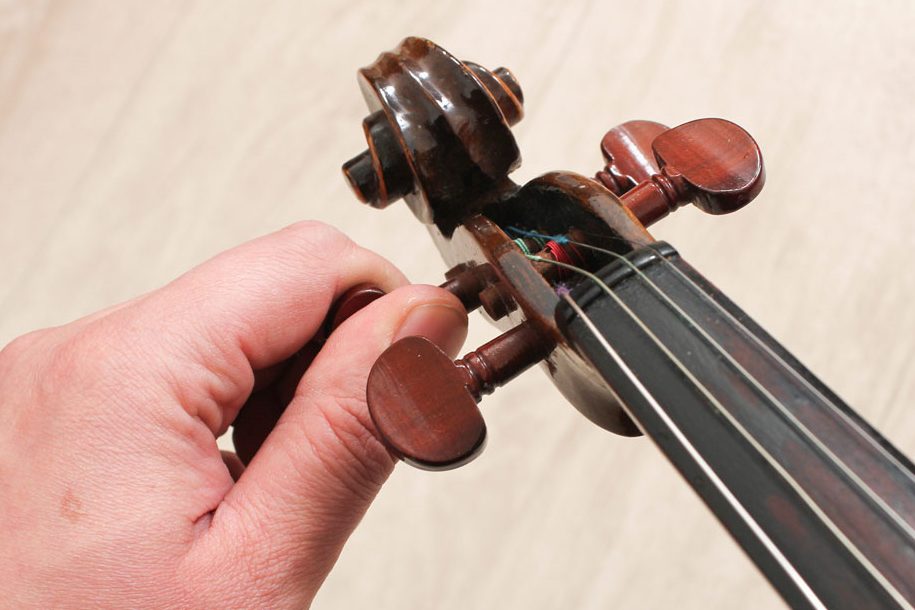You’ve finally purchased the piano of your dreams. Every day you practice, and even if you aren’t meant to share the stage at a concert hall, you can at least perform everyone’s favorite Christmas carols. In addition to practicing, you also need to engage in routine maintenance. However, it can be confusing to understand how to clean piano keys. We’ll walk you through all the necessary steps and help you understand what to do, and what not to do, when cleaning your piano keys. By the end you’ll have all the necessary information to have sparkling ivories.

Plastic keys are made from one piece of plastic on the top and one on the bottom. In contrast, ivory keys are made from three pieces. Ivory keys will have a fine line between the stem of the key and the keytop. If this line is present, then you have ivory piano keys.
It may seem obvious, but if you have a digital piano, then they keys will be plastic. If you are still at the stage of choosing a piano, then we advise you to take a closer look at the best keyboard midi controller, this is a good modern alternative, with which it is very convenient to create your own music right on the computer.
Before we get into the specifics of how to clean old piano keys, here are a few tips of what not to do.
Now that you know what to do, it’s time to focus on what you should actually do.
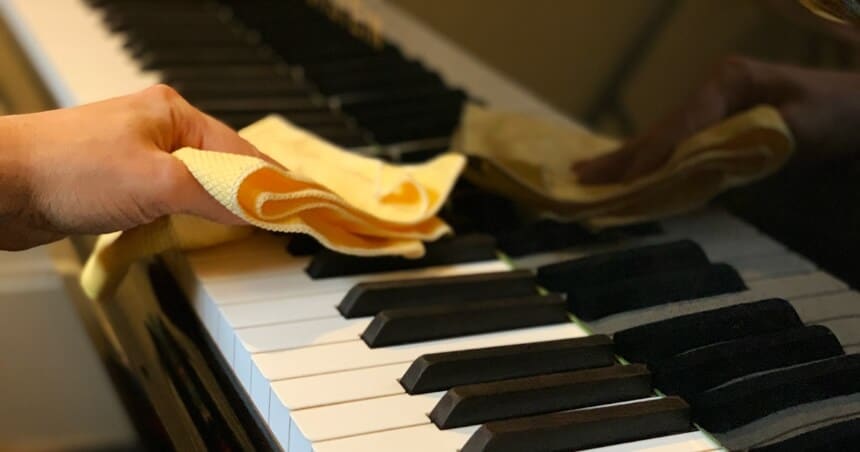
While you should regularly clean your piano keys, dusting them should be done more frequently. While you should also put the piano cover, or keylid down when not in use, dust can still accumulate. This is especially true in higher traffic areas, such as in the city.
If you can get into the habit of dry wiping your piano keys after every use, your piano will be much happier for it.
We’ve already discussed that you shouldn’t use a strong chemical cleaner on your piano keys. Instead, use a mild solution Trusted Source How to Clean Dirty Piano Keys -- Heloise Hints Heloise gives useful household hints on how to clean your sticky, grimy piano keys. www.goodhousekeeping.com of 1 part water and 4 parts vinegar for plastic keys and warm water and dish soap for ivory keys.
Again, use a soft cloth and gently wipe down the keys. The cloth should by damp and not soaking wet. If there is too much water on the cloth, it will seep down between the keys.
Always start with two cloths for this job. One cloth should be for white keys and one for black keys. If it gets too confusing, you can use a white-colored cloth for white keys and a dark-colored cloth for black keys. Start with the black keys and then work on the white keys.
Sometimes, your piano needs a bit more effort to become clean again. If this is the case, consider a special cleanser. There are many products available and they are specially formulated for pianos so while they are able to clean, they are still gentle enough.
Once your keys have been cleaned with the appropriate cleaning solution, it’s time to give them one last wipe. This will absorb any extra moisture and take up any debris from the cleaning.
Apart from your ivory keys becoming too damaged, one major consideration is discoloration Trusted Source The Ultimate Guide to Returning the White of Your Piano's Yellowing Keys - Merriam Music - Toronto's Top Piano Store & Music School Having a grand piano in the living room creates a wonderful creative space. Pianos are perfect for all kinds of decors and themes. www.merriammusic.com . Over time, ivory keys can lose their luster and become a pale yellow color. This can take away from the overall appearance of your piano.
If you have inherited an older piano with ivory keys, or have just neglected their cleaning, there are a few ways to clean yellowed ivory piano keys and make them white and bright again.
Interestingly, toothpaste can actually be used. Don’t use anything fancy, though; just plain ordinary toothpaste will work best. Dab a bit of toothpaste on a clean cloth and gently wipe down the white keys. Make sure everything has been washed off so there is no residue leftover.
Another tip for cleaning ivory keys involves indirect sunlight. Sunlight is a natural bleach agent. However, you don’t want to put your piano right in direct sunlight as this can warp the wood. A bright room with indirect sunlight can slowly bleach the ivory keys while preserving the wood.
As a final tip for cleaning ivory keys, you can purchase a simple dry eraser. These can be found in any stationary store and are primarily used to erase markers on a white board. Again, gently rub the dry eraser down each white key. Clean one key at a time.
When cleaning plastic keys, be sure to pay attention to all parts of the keys. So often we focus only on the top parts, mainly because they are easier to clean. However, all sides should be cleaned. This includes the top, bottom, and front of the keys.
Take your time and be methodical. Work from left to right so you don’t forget anything. The first cleaning might take some time but as you get used to the task, it will become a bit speedier.
Once you’re done cleaning your plastic keys, you can always take a feather duster to remove any leftover debris.
Digital pianos need cleaning too, but their digital construction adds an extra element to the cleaning process. Too much water while cleaning is bad, no matter what the piano, but with a digital piano, too much water can actually destroy the circuitry.
If there is a lot of room between the keys on a digital piano, you can actually place strips of paper or cardboard. This will prevent water from slipping between the keys and the water will further absorb any drips.
And remember that the golden rule when cleaning digital piano keys is to always remember to unplug your digital piano before you start any cleaning!
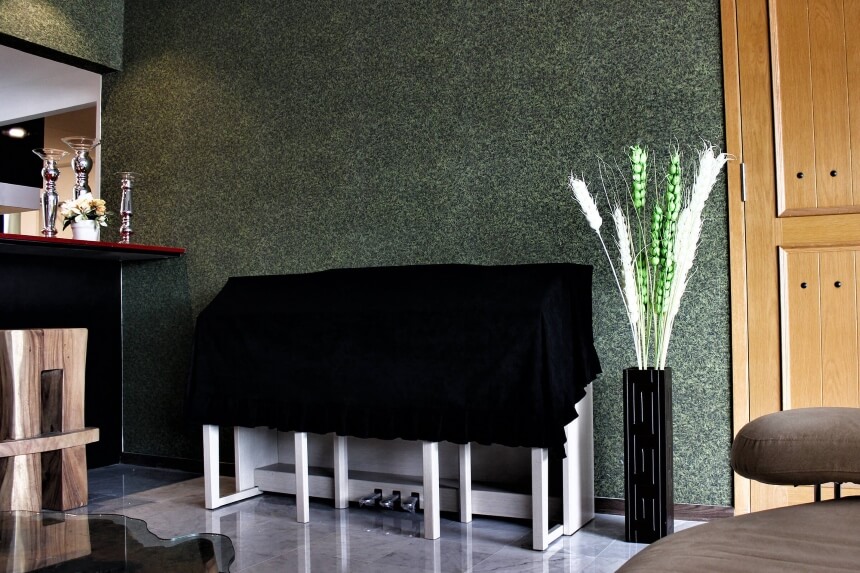
Another simple tip to keep your keys clean for longer is to wash your hands before playing. Our hands are dirty, to put it simply. In addition to the natural oils we produce, there is often food residue and germs lurking on our fingers. This is easily passed on to the piano keys.
Get into the habit of washing your hands before you play the piano so that it stays as clean as possible.
Playing the piano is a wonderful pastime. You can create beautiful music that both yourself and others will enjoy. However, if your piano is dirty or looks faded, it can be uninspiring to start tickling those ivories again. The better care you take care of your piano, the more inspired you will be to practice and play. It’s important to understand how to clean piano keys. Whether you have a piano with plastic keys or ivory keys, or even a digital piano, we hope we have provided you with some easy to understand tips to keep your piano in pristine condition.
